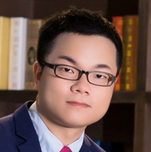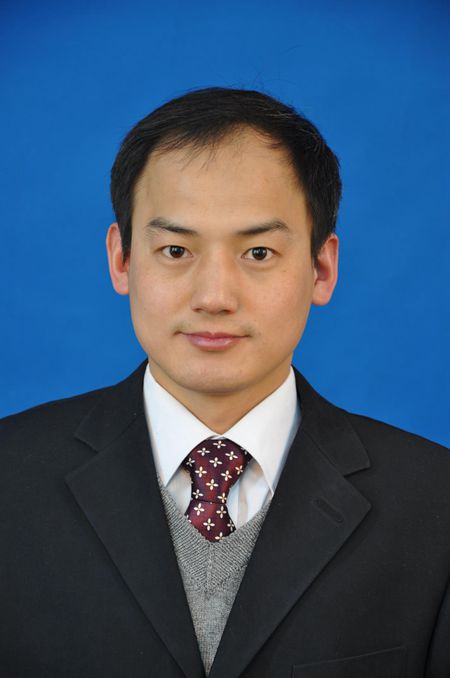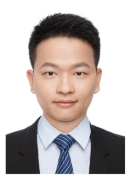

Prof. Yan Wang
State Key Laboratory of Mechanics and Control for Aerospace Structures
Nanjing University of Aeronautics and Astronautics, China
Brief: Wang Yan, born in March 1987, Professor, doctoral supervisor, overseas high-level talents, Jiangsu Double Innovation talents: He received his bachelor's degree from Nanjing University of Aeronautics and Astronautics in 2009 and his doctorate degree from the National University of Singapore in 2014. He was a Research Fellow and Research Scientist at the National University of Singapore and a senior Research Fellow at the SUTD-MIT International Joint Center at the Singapore University of Technology and Design. He has been engaged in the research of computational fluid dynamics methods and their applications, and has made a series of distinctive original achievements in the fields of 覌 dynamic algorithms, multiphase flow, fluid-solid coupling, and artificial intelligence in flow control and optimization design. So far, he has published more than 40 SCI papers, which have been cited more than 740 times, many papers have been reported by the Maxwell Foundation, the American Physical Society and other scientific and technological media, and 3 papers have been selected as ESI 1% highly cited papers. Presided over the National Natural Fund, National Numerical Wind Tunnel project, Jiangsu Provincial Natural Fund, State Key laboratory surface project each.
Personal website: https://skl.nuaa.edu.cn/2020/1222/c4727a225878/page.htm

Prof. Mouquan Shen, Nanjing Tech University, China
Brief: Mouquan Shen received the Ph.D. degree in Control Theory and Control Engineering from the College of Information Science and Engineering, Northeastern University, Shenyang, China, in 2011. From 2012, he was with the College of Electrical Engineering and Control of Science of Nanjing Tech University, Nanjing, China. Since 2018, he has been a full Professor with Nanjing Tech University, China. From 2015 to 2021, he was an visiting scholar with Yeungnam University, The University of Hong Kong, Hong Kong, and The University of Adelaide, respectively. His research interests cover fuzzy systems, iterative learning control, Adaptive dynamic programming, networked control systems, Hybrid systems and so on. He has published over 90 international journal papers and received over 1900 citations with h-index of 24.
He has been served as Editor-in-Chief for Advances in Fuzzy Sets and Systems and Associate Editors for ISA TRANSACTIONS, Proc. IMechE Part I: Journal of Systems and Control Engineering, International Journal of Robotics and Control Systems. He is also an active reviewer for over 70 international journals, such as IEEE Transactions on Automatic Control, IEEE Transactions onCybernetics, IEEE Transactions on Systems Man Cybernetics-Systems, IEEE Transactions on Fuzzy systems.
Title: Novel communication mechanisms for intelligent control systems.
Abstract: In the past decade, industrial production models have been gradually transitioning from automation to intelligence. In this evolutionary process, the utilization of network control is more crucial for intelligent control systems than ever before. Due to various factors such as network resources and working conditions, intelligent control systems often face challenges such as data packet loss, time-delay, signal quantization, actuator saturation, and limited transmission capacity. Therefore, a well-designed event triggering mechanism has become an effective means to reduce resource utilization and improve system performance. This talk focuses on the research of new communication mechanisms on intelligent control systems. Firstly, the research background and some existing achievements of event triggered control were summarized. Then, the latest research achievements of my group are introduced, including integral event triggering schemes, event triggering schemes considering delay probability density, threshold dependent event triggering schemes, and dynamic event triggering schemes based on instantaneous and average triggering errors. Finally, some future research topics are discussed.

Prof. Wenfeng Hu, School of Automation, Central South University
Brief: Dr. Wenfeng Hu is currently an Associate Professor at the School of Automation, Central South University, Changsha, China. He received the M. Eng. degree in computer software and theory from Chongqing University, Chongqing, China, in 2012, and the Ph.D. degree in mechanical and biomedical engineering from City University of Hong Kong, Hong Kong, in 2016. In 2015 and 2016, he won the Outstanding Academic Performance Award in City University of Hong Kong, in 2019, he was awarded the "Zadeh Best Conference Paper Award Finalist" in IEEE ICCSS 2019 Conference, in 2021, he was awarded the "HNAAI Outstanding Master's Thesis Award" (as the supervisor). He has published more than 30 papers in the top peer-reviewed journals, including IEEE TAC, Automatica, and IEEE Transactions on Cybernetics, and 3 papers were among the 1% Highly Cited Paper by ESI. He received the Excellent Young Scientist Fund from the Hunan Provincial Natural Science Foundation of China in 2023.
His current research interests include multi-agent systems, networked control systems, event-triggered control, and high-speed train control and scheduling.
Title:The cooperative control of multi-agent systems with high comprehensive performance.
Abstract: In this talk, starting with the overview of the cooperative control of multi-agent systems, we consider the performance issues such as reducing the communication burden and increasing the convergence rate with relatively low control cost. First, we introduce the event-triggered control strategies for multi-agent systems to reduce the communication burden among agents and talk about the brought challenging issues. Then, we address the consensus of homogeneous multi-agent systems and cooperative output regulation of heterogeneous multi-agent systems with event-triggering communication. Moreover, we will introduce the developed reset control strategies for multi-agent systems with second-order dynamics. In the end, we will give an outlook on the new topics and trend for the cooperative control of networked control systems theory and techniques.